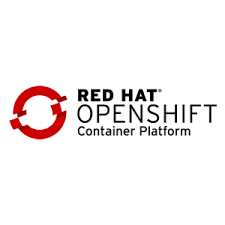About Us
Informatics Matters is a Limited Company based near Oxford, UK, but with customers and partners worldwide. We specialise in providing complete IT solutions in the domain of scientific computing, primarily for the life sciences.
We build our own products, such as the Squonk Data Manager as well as building products for customers and assisting customers in implementing solutions.
We have a strong belief in openness and communities, with much of our work being open source.

Tim Dudgeon Founder and CEO
Trained at Oxford University as a biochemist and molecular biologist, specialising in structural biology. Obtained D.Phil with Prof. Iain Campbell in conjunction with flagship biotech company British Biotech, and then worked with them for a number of years initially doing bioinformatics in the period where the first human genome was being sequenced, then handling chemical and biological data management, leading to the role of deputy head of the Information Management department. Then worked at OSI Pharmaceuticals as head UK IT. Left to set up Informatics Matters in 2003.
Worked for many years with ChemAxon, founding and leading the Instant JChem product, a joint venture between Informatics Matters and ChemAxon, and ChemAxon's first mainstream end-user application, before selling rights to ChemAxon in 2012. At that stage set up the global consultancy team at ChemAxon and managed that until 2014.
Since then has been concentrating on the Squonk Data Manager and other aspects of Informatics Matters' business.
LinkedIn
Alan Christie Senior Software Developer
Qualified in electrical and electronic engineering and specialising in hardware and real-time embedded software design projects, Alan spent 12 years developing high-performance small vocabulary speech recognition solutions for research, military and commercial sectors while at Smiths Industries Aerospace and Defence Systems Ltd. and the telephone research division of Dragon Systems Ltd. in Cheltenham.
From speech and audio applications he moved to telecommunications where he spent 7 years as a technical lead in Alcatel-Lucent developing software frameworks and optimisation algorithms for radio transmission.
Prior to joining Informatics Matters he leveraged his experience at Alcatel-Lucent by joining a technology start-up leading the development of a market-leading big-data correlation engine for complex event processing and the automated detection of faults in mobile networks. After 11 years and several iterations of the product complete Alan brings his broad software development experience to Informatics Matters.
LinkedIn
Oliver Dudgeon UI Engineer
As a postgraduate researcher at The University of Manchester, Oliver architects, designs and develops web applications for Informatics Matters. Most of his work today combines modern web technologies like React with NextJS and Typescript. He is experienced in designing producing data-driven applications.
LinkedIn GitHubWe hope you'll enjoy working with us. Our approach and outlook is very different to other companies. We're all about openness and engagement, looking for outcomes that are a win for us and a win for you.
The key to our approach is to avoid restrictive licensing practices. Too often good tools are not accessible due to licensing reasons. Most of our work is done in the open, in public repositories with open source licenses such as Apache 2.0. Take a look at our GitHub repositories as an example. Yes, we are a business, and yes, we do have salaries to pay, kids to feed, and we achieve this through a service model where organisations needing support or expertise pay for this, with the underlying tools being open and free to use. This not only encourages adoption but opens the tools up to a much wider audience, as well as encouraging customers and third parties to contribute.
For a flavour of this take a look at us on: GitHub | Docker Hub | LinkedIn

Java High performance, flexible, productive
Much of our work is done in Java as it is a well-established programming language for client and server-based programming. Key advantages are the huge ecosystem of libraries that are available, excellent tooling in terms of IDEs, debuggers and profilers, and the vast amount of knowledge and examples that are available. We also make much use of the Groovy language, which is strongly tied to Java as for some purposes it provides more flexibility. Most important, we find working with Java is very productive for us, allowing to create robust, well-tested programs, especially for larger projects.

Python Flexible, productive, data science
Much of scientific computing community uses the Python programming language, and so do we. It provides a flexible and productive way to create scientific and business software, and has a wide range of tooling that supports these processes.
Docker Images, containers, linux
Whilst Linux container technology has been around for many years, Docker made this accessible to the developer community with its simple way to package up and run containers using Docker images. We were early adopters of Docker, and have a wide range of experience in using it. Most of the systems we work on today use containers.

React Web Apps
React, from the developers of Facebook, is a open-source javascript web framework facilitating the creation of data-driven web application. We use modern web APIs and technologies to build scientific apps that anyone can use with just their web browser.
Cloud computing AWS, GCE, OpenStack, Scaleway
Today everyone is wanting to use the cloud. We've been using it for several years, including feature rich premium services such as Amazon Web Services (EC2), bare bones low cost providers like Scaleway, and provide your own options like OpenStack.


OpenShift Kubernetes, containers, security, deployment, cluster
Red Hat's OpenShift, and Google's Kubernetes technology on which it is based, is becoming the dominant container platform for building and deploying applications. We have been using OpenShift version 3 for some time and are building secure solutions around this.